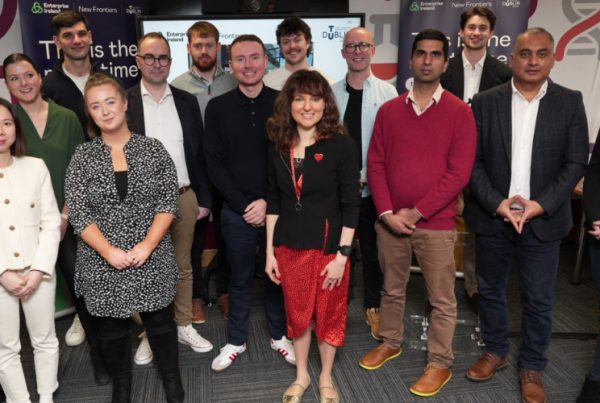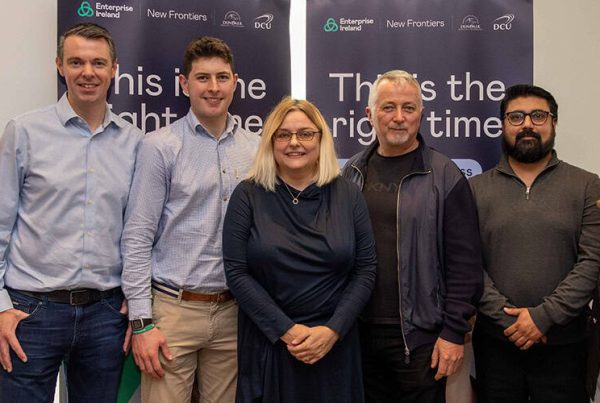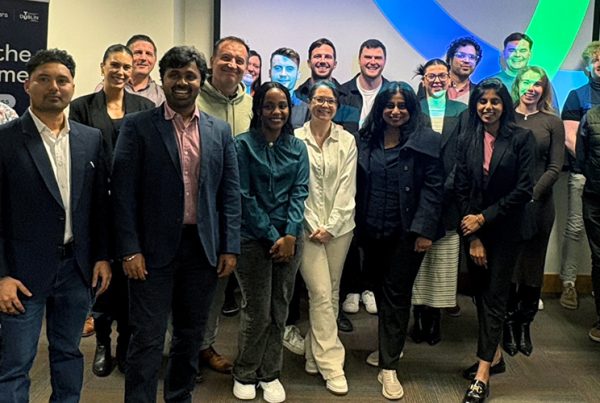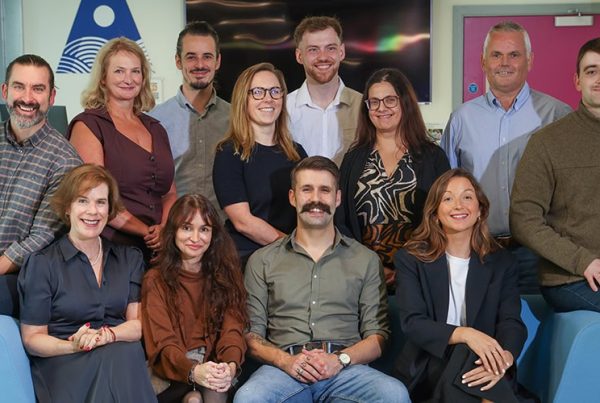
There’s nothing quite as exhilarating as seeing your startup idea come together and take the shape of a deliverable service or product. But now there’s a fresh challenge waiting for you – winning those invaluable first customers. Not beta testers, not friends and family. Real, paying customers.
We spoke to Nicky Bowman, an experienced sales coach and Enterprise Ireland mentor, about how startup founders can develop their sales strategy and find those crucial first customers.
Presumably, if a founder has built an amazing product or service, getting sales should be fairly easy?
As a startup founder, you probably have years of industry experience behind you that’s been invaluable for getting you to this point. But suddenly you have to think about sales, and this is likely to be far out of your comfort zone. For the first few years at least, you won’t be generating the kind of turnover that will enable you to hire a salesperson, so that duty is going to fall on you as founder. But sales is a lot more skilled than many founders imagine, and it’s important to go about it the right way. If you go out there with the impression that a monkey could do it, you’re probably in for a big shock.
Tell us more about what makes for a good sales strategy
Sales is not about going out and telling people how fabulous your product/service is and how excited they should be. The chances are you’ll have a great meeting but won’t actually sell anything. When done right, sales brings a customer to the understanding that they need your product, but very few people will make that connection for themselves. It’s the reason a lot of new startups get off the ground but then struggle to get past the first handful of sales. I think a lot of organisations tend to throw a lot of mud at the wall – they might do a huge amount of untargeted marketing, for example, in the hope that people will pick up on it and make the connection. But, as they say, hope is not a strategy!
A good sales strategy is quite targeted then? How do founders go about that?
Yes, the key to success is to find those people who are willing to make the switch to you despite the fact you don’t have a track record. These ‘early adopters’ as they are known are your first target market. You need to identify the reasons why they might be interested in your service/product and then align your approach with those reasons. You start this process by identifying which organisations – and which individuals within those organisations – are likely to be willing to try something a bit different so you can focus on them. This would be in the B2B market, obviously.
That sounds difficult if you don’t have inside knowledge of the company. How is this done?
You’ll want to be quite programmatic about it. It all starts with good research. You should look for those organisations that are less traditional, ones that may have been early adopters of other solutions or processes in the past. You can tell a lot of that just from their mission statements and the texts on their websites. Do they talk about being innovative? Or do they talk about being steady and reliable? With good market research, you can identify those forward-thinking organisations to target. Then ask yourself questions such as: What is their process for buying and who needs to be involved? Would they need to do some kind of trial or pilot? Do they have to go through a committee for approval? That will show you how to make your initial approach to them.
It sounds like a data-led approach is most likely to get results?
Absolutely, it’s all about data. But it often surprises me that people who have a very data-led approach to the rest of the business start making a lot of assumptions when it comes to sales. Experience in an industry doesn’t always mean experience of a market. The ideal candidate for purchase is often not the one the startup founder assumed. The way to get over this gap in assumptions is to ask yourself WHY? If you think your ideal prospect is a 40-year-old male in business development, ask yourself why you think that and look for evidence to back it up. You won’t know who to get in touch with until you have a solid grasp on the market and the prospects you need to target.
And what needs to happen once that first contact with the right prospect is made?
Even if you’re not experienced in sales, you can still build out a strong process to support the sales function. This involves establishing how a prospect will make a decision and determining how you can help them along that path. If your product/service is fairly expensive, there is likely to be a reasonably complex decision-making process on the purchaser’s side. The scenario where you walk into your first meeting and someone says “I love your stuff, here’s a cheque” is for movies. The more likely situation is that you first raise awareness, then you establish interest, and then you move on to talk numbers. But because you’ve already found out what their decision-making process is, you’ll be able to help them at each stage.
What should happen once someone does say ‘Yes’?
It’s fairly common for people to say ‘Yes’ in the room, but you must never stop with your process until you have a signed order in your hand. They may say they want to work with you, they may say the product/service looks great and they can’t wait to get going, but what you want is concrete action. This is where your robust process will keep the wheels turning: Can I call you next week? Who needs to approve this? How can we get a Purchase Order raised? Your sales process should help people along the journey of Awareness, Interest, Decision and Action.
Are there any common mistakes you see inexperienced salespeople repeat?
Yes, it’s very common to see what we call the show-up-and-throw-up method, which is just to sit there telling the prospect everything you can about your product/service. The key skill in selling isn’t to talk until you establish interest, it’s to ask questions so that you can establish WHY they might be interested. The other thing people do is they keep talking after the prospect has shown clear interest. Once someone is interested, they don’t need to hear, “It also does this, and it can do that.” They’re interested, so now you need to start asking for action. Ask for a commitment, or get decision-makers into the room, whatever the next step is according to your process.
What would be your key takeaways for the founder fulfilling their own sales function?
The headline for me is that selling is a profession like any other and you have to learn the skills involved to do it well. You can’t wing it. As a founder, it’s likely that you’ll have to take on sales at the beginning because you’re bootstrapping. And you probably dream of the day you start making a bit of money and can hire a salesperson to take this task over. My advice to you is to not do that until the day you can afford to make the wrong hire. The issue is that hiring salespeople is even harder than selling, because salespeople are really good at interviews. They’re salespeople, after all. So, before you make that hire, and it’s an expensive one to make, think about how much it will cost you if it doesn’t work out.
But I don’t want to end on a negative note! Sales is simply a skill and a set of processes that anyone can learn. You can too, and who better than you in those early days to go out and sell the product or service you’ve developed. I’ve seen entrepreneurs who really don’t like selling and are not naturally a fit for it learn to do it very well. They’ve understood that it’s all about developing a good process and they’ve adjusted to that way of thinking. And it’s worked for them.
You can find out more about Nicky Bowman and her sales coaching at www.salescoach.consulting
About the author

Scarlet Bierman
Scarlet Bierman is a content consultant, commissioned by Enterprise Ireland to fulfil the role of Editor of the New Frontiers website. She is an expert in designing and executing ethical marketing strategies and passionate about helping businesses to develop a quality online presence.
Recent articles

Founder Perspectives: Lessons From Building Businesses In Sustainability

Tech Startups In The Age Of AI: Alumnus Paul Savage On Speed, Quality & Risk

Fourteen Startup Founders Graduate From Phase 2 Of New Frontiers In Tallaght

Eleven Founders Graduate From New Frontiers In The Border Mid-East Region

Laying The Right Groundwork Helps Startups Prepare For Export Success

Startup In Dublin: Learn More About New Frontiers On TU Dublin’s Grangegorman Campus

Michael Furey On The Success Of Ronspot: “The Most Important Thing Is Research”


